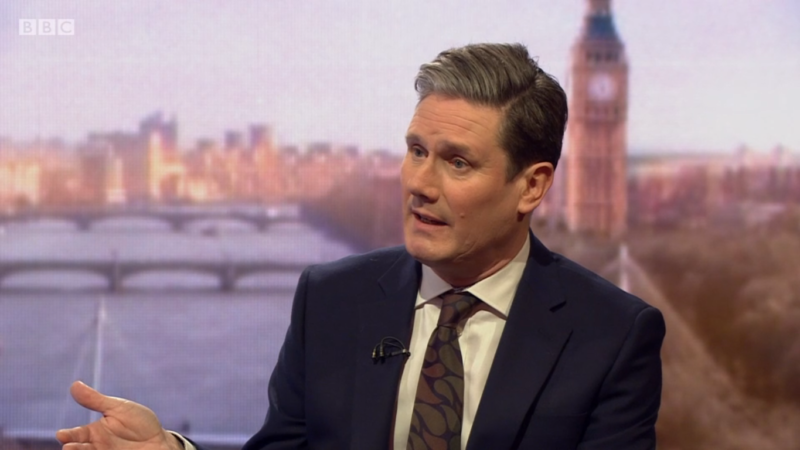
A new poll by YouGov shows that Keir Starmer currently has a big lead among Labour members over any other potential leadership candidate – including Rebecca Long-Bailey, who is expected to stand as the most ‘Corbynite’ contender. The research involved 1,059 members weighted by age, gender and region, and surveyed between December 20th and 30th.
Those activists wanting to put in place a successor to Jeremy Corbyn who can be most trusted not to abandon Corbynism – or adopt something not far from that project – might be disappointed by the result. Long-Bailey would be expected to keep trade union voices at the heart of the party and continue pursuing radical policies. Starmer has stayed in the shadow cabinet and refrained from open criticism of the leadership since Corbyn’s 2016 reelection, but is no Corbynite. He has pretty much vowed not to lurch to the right, but there is some uncertainty as to what he would really do as leader.
Should Corbynites panic? There are good reasons to do so. Starmer is well-liked by members, who are predominantly based in big cities, particularly London, and backed a fresh EU referendum as well as Remain. It is not surprising that they would see neither his being from North London nor pioneering Labour’s 2019 election Brexit position as damaging. The Brexit spokesperson was consistently picked as the favourite shadow cabinet member of LabourList readers before John McDonnell rose to the top last summer. Starmer has also pitched to the left during the post-election period, showing that he understands what needs to be done to win the race.
However, there are a few important points to be made about this new polling. We are in the very early days of this leadership contest – in fact, it hasn’t even formally started yet. Only two have officially declared bids. Comment pieces have been written, but there have been no interviews and most of the detail so far has come from Emily Thornberry who is focussing on MP nominations rather than members’ votes. Clive Lewis, the other confirmed hopeful, also set out clear aims – though that was in just one article for the Guardian. The bottom line is that members have not yet seen much at all from the leadership contenders.
Much of the relevant selectorate will not have made up their minds yet. Even more critically, such an early poll will be measuring what respondents already know of the potential candidates – and therefore how much they know of them. The order of success in the poll – Starmer (31%), then Long-Bailey (20%), followed by Jess Phillips (11%), Clive Lewis (7%), Yvette Cooper (7%), Emily Thornberry (6%), Lisa Nandy (5%) – looks to some extent as if it mirrors their respective levels of name recognition. That is true particularly for Nandy. And we haven’t been given information on the “don’t know” responses, which were excluded from the results.
To address this ‘name recognition numberwang’ problem ahead of Labour’s 2015 leadership election, polling agency Survation used a video focus group method. Respondents had to rank the importance of characteristics deemed desirable for a party leader, then watch clips of each candidate. This approach led to Jeremy Corbyn doing very well in the research. It is something that would be useful now, when Starmer has had a high profile for longer than the other hopefuls (apart from Cooper). They will all eventually be given exposure via interviews and televised debates during the contest, which could significantly alter the views of members.
That name recognition is probably doing a lot of the heavy lifting in this new poll does not mean it should be ignored. Long-Bailey being most popular among Leave voters could have interesting consequences for her campaign and inform the narrative pushed by others. Starmer has a good chance of winning. But there is no use writing anyone off just yet – a lot can change. Angela Eagle was impressive at the despatch box before the 2016 leadership challenge, but her campaign launch faltered in a fatal way. The performance of each candidate when they are put under the spotlight in the weeks to come will be decisive, as Labour members learn more about those wanting to take over the reins of the party.




More from LabourList
‘AI regulation is key to Labour’s climate credibility’
Ben Cooper column: ‘Labour needs to rediscover its own authentic populism’
‘Westminster rethought: a new purpose built site and a museum of democracy’